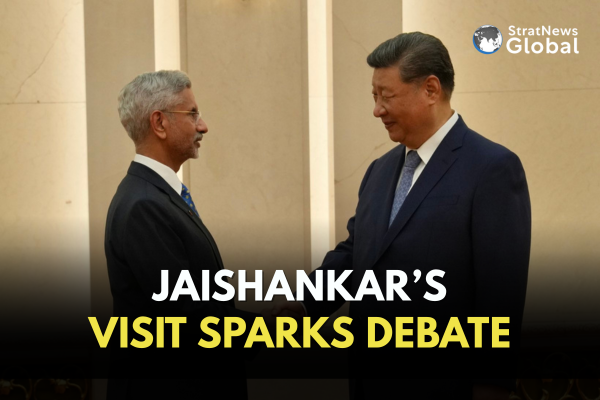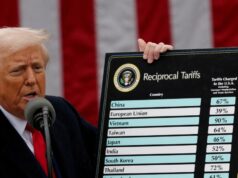External Affairs Minister S. Jaishankar’s two-day visit to China, where he is attending the Shanghai Cooperation Organisation (SCO) Foreign Ministers’ Meeting, has become a top-trending topic on Weibo (China’s equivalent to X, formerly Twitter).
His visit sparked widespread discussion among Chinese analysts and social media users, many of whom are closely monitoring India’s evolving foreign policy—especially its current approach towards China amid shifting global dynamics. While many Chinese netizens reacted positively, welcoming signs of improvement in India-China relations, critical narratives continue to circulate, with some questioning India’s diplomatic posture.
Among these, the popular Anti- India Weibo account “1002Shenme”, with over 307,000 followers, has gained attention for accusing India of repeatedly making new demands despite China’s goodwill gestures (Weibo Post screenshot attached below), such as the reopening of the pilgrimage route to Mansarovar Yatra. According to the account, India’s new demands include mutual sharing of river data, lifting of trade restrictions and resumption of normal economic exchanges, and accused India of never being satisfied with anything.

Professor Lin Minwang of Fudan University suggested that future progress in China-India ties depends largely on India’s approach, and said India’s domestic politics and Prime Minister Narendra Modi’s leadership shape a cautious strategy towards China. “India still holds a wait-and-see attitude. Its China policy lacks full commitment,” Lin said in his comments to a Chinese state media website.
Lin also claimed “India’s global image took a hit after the May 2025 India–Pakistan clash.” He was referring to Operation Sindoor, carried out by the Indian Armed Forces on May 7, 2025, in response to cross-border terrorism threats.
As part of this precision operation, the Indian Air Force launched deep strikes on terror infrastructure inside Pakistan, following credible intelligence. Far from being a setback, Operation Sindoor demonstrated India’s growing defence capability and reliance on indigenous systems, showcasing its ability to respond decisively to regional security threats.
A popular Zhihu article speculated that operations like Sindoor and continued border tensions were putting pressure on India’s economy. It further argued that India’s reaffirmation of the October 2024 Kazan Consensus signals its desire to maintain stable ties with China without external interference, indirectly referring to the United States.
A separate video (screenshot attached below) circulating on Weibo and Douyin claimed Jaishankar’s visit was intended to “buy time,” suggesting New Delhi feared Chinese military moves in what Beijing calls “Southern Tibet”—a term China uses for Arunachal Pradesh, which remains an integral and sovereign part of India. India has consistently rejected all Chinese territorial claims over the region.

Chinese online discussions also focused on India’s rising defence spending and infrastructure development along the LAC.
Indian policymakers assert that New Delhi’s engagement with China is not driven by hesitation but by strategic clarity and maturity. Diplomatic talks continue because India understands that strength lies in dialogue backed by preparedness. While reaffirming its sovereignty over Arunachal Pradesh, India remains committed to peace, stability, and its independent foreign policy in the Indo-Pacific.
Research Associate at StratNewsGlobal, A keen observer of #China and Foreign Affairs. Writer, Weibo Trends, Analyst.
Twitter: @resham_sng





